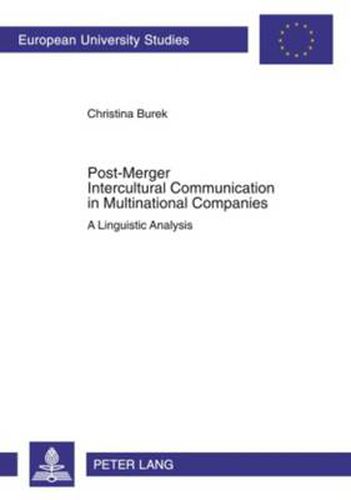Readings Newsletter
Become a Readings Member to make your shopping experience even easier.
Sign in or sign up for free!
You’re not far away from qualifying for FREE standard shipping within Australia
You’ve qualified for FREE standard shipping within Australia
The cart is loading…






This title is printed to order. This book may have been self-published. If so, we cannot guarantee the quality of the content. In the main most books will have gone through the editing process however some may not. We therefore suggest that you be aware of this before ordering this book. If in doubt check either the author or publisher’s details as we are unable to accept any returns unless they are faulty. Please contact us if you have any questions.
In this book, the focus is on post-merger intercultural integration, effective communication between the relevant cultures and the different politeness strategies adopted by them. It is argued that cultural differences are a key issue in misunderstandings and miscommunication, which can affect a smooth post-merger integration, thereby focusing on differences between the Australians, US-Americans, Germans and the Swiss. The research contributes to bridge the gap between pragmatics, sociolinguistics and intercultural management studies. The empirical findings identify a company’s social dimensions and execution skills as strategic sources of competitive advantage in cross-border M&A activity.
$9.00 standard shipping within Australia
FREE standard shipping within Australia for orders over $100.00
Express & International shipping calculated at checkout
This title is printed to order. This book may have been self-published. If so, we cannot guarantee the quality of the content. In the main most books will have gone through the editing process however some may not. We therefore suggest that you be aware of this before ordering this book. If in doubt check either the author or publisher’s details as we are unable to accept any returns unless they are faulty. Please contact us if you have any questions.
In this book, the focus is on post-merger intercultural integration, effective communication between the relevant cultures and the different politeness strategies adopted by them. It is argued that cultural differences are a key issue in misunderstandings and miscommunication, which can affect a smooth post-merger integration, thereby focusing on differences between the Australians, US-Americans, Germans and the Swiss. The research contributes to bridge the gap between pragmatics, sociolinguistics and intercultural management studies. The empirical findings identify a company’s social dimensions and execution skills as strategic sources of competitive advantage in cross-border M&A activity.